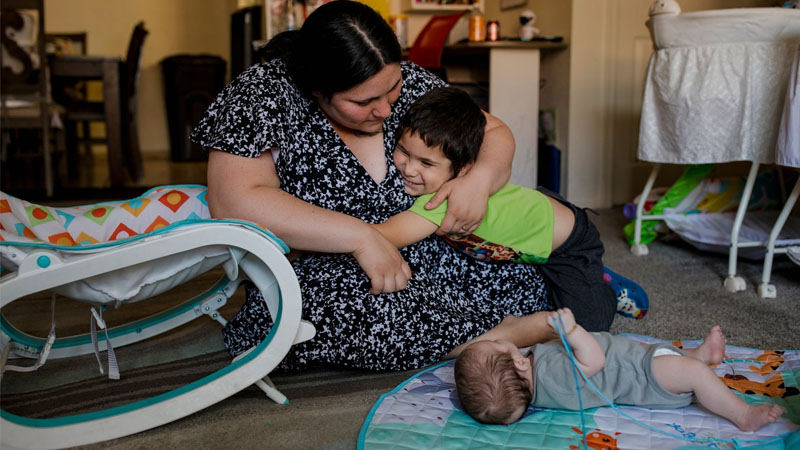The moves follow months of reporting on punitive and outdated welfare policies in this part of the country and come amid a years-long surge in the region’s cost of living.
Several legislatures in the Southwest are reconsidering their welfare policies, with several enacting or considering new laws to ensure that greater support is available to low-income families struggling to pay rent, child care, groceries, and diapers. The changes come after months of ProPublica reporting on the region’s punishing and outdated welfare regulations, as well as a years-long rise in the region’s cost of living.
Gov. Michelle Lujan Grisham of New Mexico signed a budget into law on Wednesday that will allow $6.96 million in child support to be paid directly to children rather than to the government. Until now, the state has been intercepting this money as compensation for the custodial parent who had previously received welfare, according to a report by ProPublica in September.
All of the money will now go to low-income kids.
In February, Arizona legislators introduced a bill that would, among other things, double the amount of cash aid available to impoverished parents and continue to adjust it for inflation in the future. The bill would also lengthen the time restriction on how long these families can receive help, which is now the shortest in the nation.
ProPublica’s expose on a mother in Phoenix called Arianna Bermudez, who was cut off from welfare assistance that she badly needed to afford child care, only to have welfare funds used to help pay for a probe into her parenting, advocates claimed, impacted the potential reforms. (Her son was removed from her care for more than six months, even though she was not accused of any child abuse or neglect.)
And in Colorado, a bill was introduced late last month that would make several similar changes, including removing restrictive barriers to accessing cash aid and increasing monthly payments, in part to reflect how rents and prices have been increasing in that state, as they have been around the Southwest.
The most important policy shift is in New Mexico, which has been in the works since last year. According to Nora Meyers Sackett, the governor’s press secretary, ensuring that child support is truly getting to children is a priority for the administration.
Single mothers applying for public assistance in New Mexico, which has one of the highest child poverty rates in the country, must first reveal under penalty of perjury who fathered their children and the exact date when they became pregnant, among other deeply personal details, according to ProPublica’s investigation. The state then uses this information to demand child support from the dads, pocketing a large portion of the money and splitting the rest with the federal government.
Most states still do so, thanks to a 1996 welfare reform law signed by then-President Bill Clinton, which encouraged states to recoup the money spent on public assistance in this way.
According to Jodi McGinnis Porter, a spokesperson for the New Mexico Human Services Department, the change could take several months to take effect, most likely until July. Updates to the state’s child support computer system and notifying the federal government that the new policy is in effect are among the remaining fixes, she added.
Arizona, on the other hand, has been a national outlier in its brutal treatment of public assistance applicants. Only 6% of the state’s poor families meet the criteria for income support, and even if they do, the amount — $278 per month for a family of three — is among the lowest in the country.

